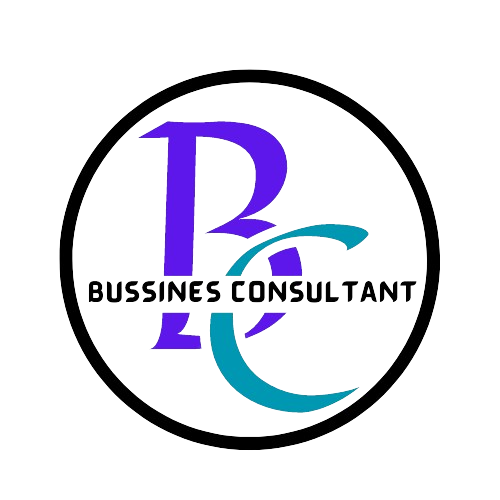Understanding Home-Based Business license:
What Qualifies as a Home-Based Business?
A home-based business is any business that primarily from an individual’s home. Characteristics of these businesses often include low overhead costs and flexibility in hours and operations. Here are a few common types:
Service-Based: Think consulting, tutoring, or freelance writing. You provide a service directly to clients.
- E-commerce: Selling products online through platforms like Etsy, eBay, or your own website.
- Consulting: Sharing your expertise in a specific field, such as marketing or finance.
- Arts and Crafts: Creating handmade goods to sell locally or online.
The growth of home-based businesses has been remarkable in recent years, especially as more people seek flexible work arrangements and as technology makes it easier to serve customers remotely.
Benefits of Home-Based Business
There are many perks to setting up shop at home, including:
- Flexibility: You can choose when and where you work. This makes it easier to balance family commitments or personal interests.
- Cost Savings: Eliminate commuting costs and the need for office space. You can save a significant amount of money!
- Better Work-Life Balance: No daily commute means more time for yourself, your family, and your hobbies.
Challenges of Home-Based Businesses
However, running a business from home is not all sunshine. Here are some common hurdles:
- Isolation: Working from home can lead to feelings of loneliness. It’s not uncommon to miss daily interactions with coworkers.
- Work-Life Separation: It can be tough to switch off work when home is your office. Setting boundaries becomes crucial.
- Legal and Regulatory Hurdles: Understanding local laws and regulations can be daunting, and navigating these can often feel overwhelming.

Importance of Business License
What is a Business License?
A business license is a government authorization to operate a business legally within a certain jurisdiction. It serves several purposes, including:
- Allowing your business to operate within local regulations.
- Ensuring that you properly collect taxes and follow health and safety protocols.
- Varying greatly depending on your business type and how it operates.
Reasons to Obtain a License
Obtaining a business license is vital for several reasons:
- Legal Compliance: Avoid fines or penalties by adhering to local laws.
- Building Credibility: A license shows customers you are serious and trustworthy.
- Access to Business Support: Having a license may enable you to access essential resources, grants, or funding.
Role of Permits and Zoning
It’s essential to understand the difference between licenses and permits.
- Licenses allow you to operate a business, while permits may be needed for specific activities, like selling food or making renovations.
- Each locality has zoning laws that dictate what types of businesses can operate in residential areas.
- Research any necessary permits according to your business type; for example, a home bakery might require health permits.

Steps to Obtain License
Research License Requirements
Starting your licensing journey requires thorough research.
- Identify local, state, and federal requirements which may differ based on your location and business type.
- Utilize government websites and resources like the Small Business Administration for comprehensive guidance.
- It’s often helpful to consult with your local business office to clarify any uncertainties.
Prepare Your Business Plan
A solid business plan can make your licensing process smoother:
- Include components like the business’s nature, target market, marketing plan, and financial projections.
- Having a well-thought-out plan helps convey your business’s legitimacy to licensing authorities.
- Don’t forget to outline your business structure (e.g., sole proprietorship, LLC).
Submitt Your Application
When it’s time to submit your application, here’s what to expect:
- Gather necessary documentation, which may include the business plan, proof of identity, and local compliance forms.
- Pay any required fees, varying by jurisdiction.
- Approval timelines differ, but it’s always good to follow up and ensure your application is on track.
Maintaining Business License
Renewing License
Most business licenses require renewal after a specific period:
- Familiarize yourself with the renewal frequency; it could be annually, biannually, or infrequently.
- Pay close attention to the renewal procedures to avoid lapsing.
- Update your business information during renewal to keep everything accurate.
Staying Compliant with Regulations
Ongoing compliance is critical for your business’s success:
- Keep detailed records of business transactions and meetings to keep you organized.
- Stay updated on new laws and regulations in your area that could impact your operations.
What to Do if License is Revoked
In case your license faces suspension or revocation, here’s what you can do:
- Understand common reasons, such as failure to renew, legal violations, or complaints from neighbors.
- Address any issues by contacting the relevant authority and providing necessary documentation or evidence.
- Seek legal support if necessary—various resources can guide you through the process.
Additional Considerations for Home-Based Business Owners
Insurance for Your Home-Based Business
Protecting your business with insurance is a wise decision:
- Business insurance can cover liability, property damage, or equipment loss.
- Consider factors like the type of business you run when selecting coverage.
- Understand the difference between personal and business insurance to make informed decisions.
Tax Implications for Home-Based Businesses
Managing taxes can be tricky, but it’s crucial:
- Understand your obligations, including income tax and self-employment tax.
- Familiarize yourself with potential deductions available, like home office deductions, which can help reduce your taxable income.
- Consulting with a tax expert can simplify the process and help you avoid costly mistakes.
Networking and Marketing
Effective marketing is essential for building your customer base:
- Use social media platforms and online marketplaces to reach potential customers.
- Networking, even from home, can be accomplished through online communities or local business groups.
- Building relationships can lead to referrals and new opportunities, so don’t hesitate to reach out!
Conclusion
Starting and running a home-based business can be fulfilling and advantageous, but understanding the ins and outs of licensing is crucial. Always remember to conduct thorough research, stay informed about legal requirements, and maintain good practices for success.
A license allows you to operate your business, while permits are often required for specific activities or compliance with local regulations.
Timeframes vary; it can take a few weeks to several months, depending on your location and local processes.
Yes, unless your online business is solely a hobby, you typically need a business license.
Operating without a necessary license can lead to penalties, fines, or even shutting down your business.
Consequences may include fines, loss of business credibility, and potential legal actions from local authorities. Stay compliant to protect your business!




